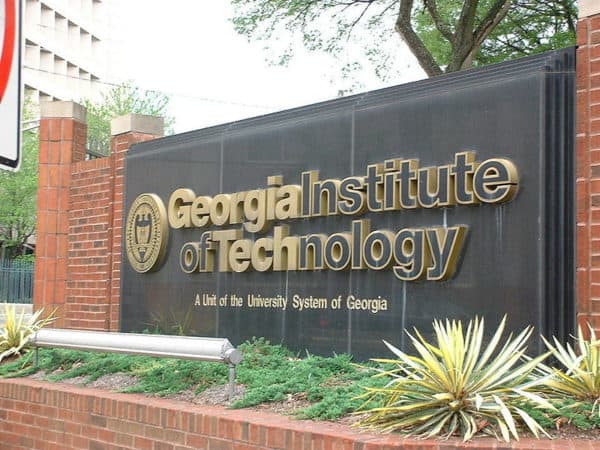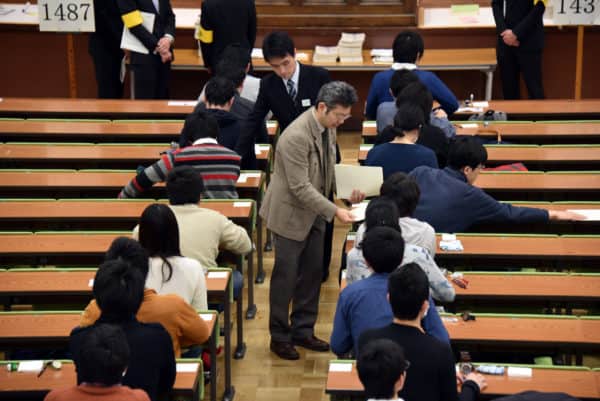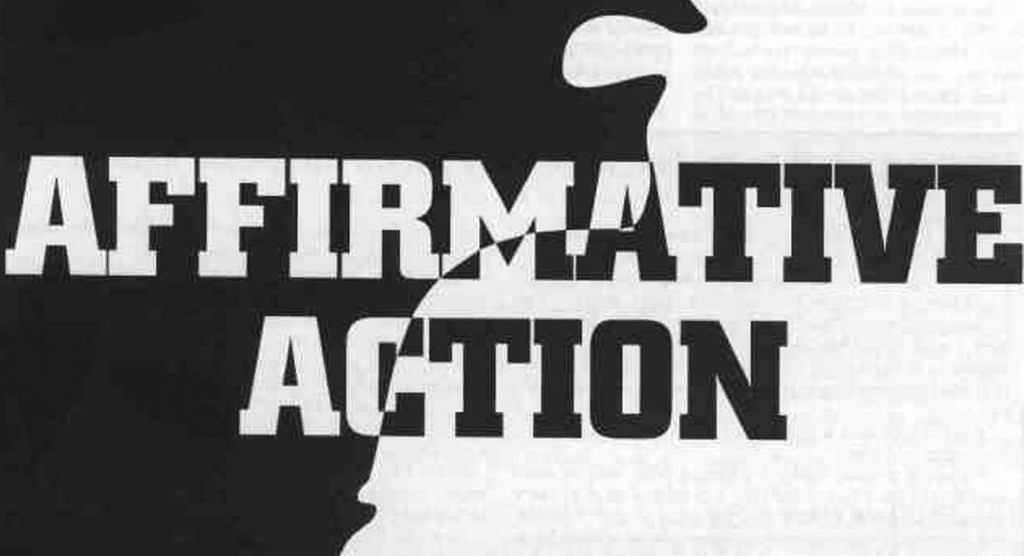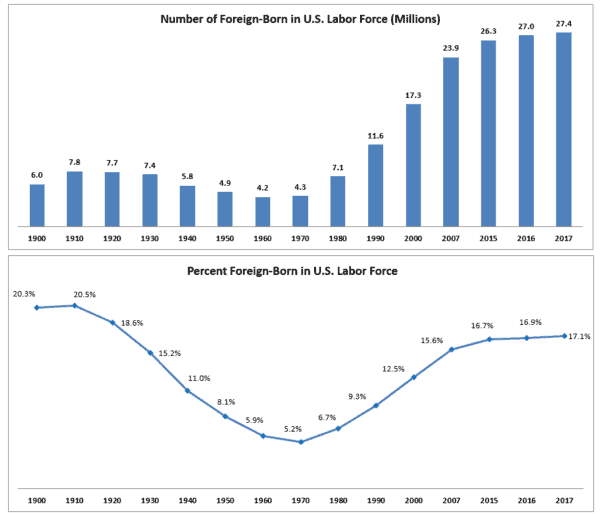Squeezed to Zero: How the Woke and the Chinese are Destroying Academic Mathematics
Thomas Anderson, American Renaissance, February 13, 2020
This is part of our continuing series of accounts by readers of how they shed the illusions of liberalism and became race realists.
There is little sympathy for academics among conservatives, and I understand why. Tenured academics have job security unparalleled anywhere but in government jobs, and spend most of their time either indoctrinating students with “woke” ideology or lapping up taxpayer money on vanity projects posing as “research.” Graduate students seem to spend more time on social media screeching about the latest faux outrage than studying or contributing something worthwhile. Professors who disdain the current direction of the academy privately are viewed (not incorrectly) as cowards. Their unwillingness to stand up has let previously niche concepts such as “intersectionality” slip into the mainstream.
Despite all this, many parents continue to send their students to college, hoping that the STEM (Science, Technology, Engineering, and Mathematics) departments are not yet polluted. Pervasive as the social justice initiatives may be, it’s assumed that engineers and mathematicians have the logical fortitude to withstand it all and continue to train great researchers and scientists. Nearly everyone believes that the STEM fields are still fundamentally meritocratic and lucrative. Unfortunately, this is no longer true.
What follows is my story of navigating the academic and private sector research and development fields as a student, a privately employed researcher, an entrepreneur, and as a professor over the last fifteen years. I’ve been all over the country, so my experiences span geography as well as time.
I studied at Georgia Institute of Technology for my undergraduate and Master of Science (MS) degrees starting in the mid 2000s. It was one of the most challenging intellectual experiences I’ve ever had, and worth every minute. I studied under renowned professors in mathematics, chemistry, and physics, who were putting out incredible research. Students can and did flunk out, and professors were not afraid to fail underperforming students. Exams and labs were extremely difficult, and expectations were high. I worked as a teaching assistant as an undergraduate in the mathematics department and learned quickly how to teach very bright students who could challenge me. There was no room for error. There were very few women (one for every three men), and even fewer non-Asian minorities. It was understood that any black student on campus was most likely an athlete and majoring in management.

Credit Image: TheCustomOfLife via Wikimedia
I was surrounded by opportunity: My fellow students were brilliant, the professors were incredibly inspiring, and the administration mostly left us alone to do our work. There may have been little bits of social justice nonsense from the few literature professors, but no one paid them any mind. I just laughed my way through the one English class I had to take. It seemed silly and irrelevant, just some navel-gazing nonsense the humanities majors did because they didn’t have any real work to do.
I had always wanted to be a professor, but my undergraduate experience with so many intelligent people made me second-guess whether I had what it took to join the ranks of such intellectual giants. To be practical, I began working on an MS in statistics while still in my post-bachelors program. I was one of perhaps five white students in the entire program; almost all were Chinese. I felt foreign in an American classroom in my home state, surrounded by students who looked nothing like me, speaking a language I couldn’t understand.
It was during this time that I began to realize that Asians are not, in fact, smarter than or similar to white students. I can’t understate how rampant the cheating was. It was incredibly obvious, but the professors looked the other way. This is because international students are a cash cow for universities. Asian students study only to pass the test in the easiest, fastest way possible, not to learn any material. This was most apparent when we were sent to find real datasets and work through statistical analyses. Real data is messy — Google cannot help you. It requires an actual understanding of statistics, common sense, and creativity in order to understand what data might be telling you. The Asian students tried to parrot examples from our textbooks, which were developed with simple, contrived data, and their results were a laughable mess. They were unable to answer hard questions about the theoretical basis of their work, and couldn’t grasp any assumptions or limitations of their models. But they always aced the tests.
Over the next two years, I developed the confidence to commit my life to research in mathematics, and found my passion in probability theory and stochastic processes, particularly in applications to reliability and queueing theory. I began applying to PhD math programs across the country.
Every applicant was (this is no longer true) required to take the Graduate Record Examinations (GRE) exam, which is similar to the SAT, but tougher. Many top-tier schools also required an additional test called the subject GRE. There are different ones for different fields, and the one I was required to take was for mathematics. The test has 66 questions, with a three-hour time limit. No materials other than a pencil are allowed. The test spans every topic in math: modern (abstract) algebra, number theory, calculus, differential equations, real analysis, functional analysis, etc. It’s almost impossible to finish the test; the multiple choice answers are intended to trip you up, and solving the problems is long and arduous. There might be “shortcuts” that one could memorize for some types of problems, but the breadth of the exam is so vast that it’s impossible simply to study for it the way you would for a typical test.
There are two scores an applicant will receive: a raw score (the number correctly answered), and a scaled score. The scaled score is relative: it compares your performance to the other test takers, and artificially forces the scores onto a normal distribution (bell curve). Thus, your scaled score, which is what institutions pay attention to, shows how you rank among those who took the test when you did. Depending on who took the test, a single missed question can give you a scaled score that’s 100 points different from your raw score.
Students all over the world take this exam, hoping to enter top-tier institutions in Europe and the United States, and the best schools usually admit the people with the top scaled scores. The year I took the test, the people at the top got perfect scores — a nearly impossible achievement — and almost every one was Chinese. Is that because they were brilliant? A simple online search yields hundreds of results of Chinese cheating rings for entrance exams, including the one for mathematics. I cannot prove it, but I believe cheating cost me admission into several universities. When Chinese and Indian students cheat their way to a perfect score, this puts those of us who took the exam honestly out of the running. Shut out of the elite programs, I looked for and found a smaller one in Texas.

(Credit Image: © Natsuki Sakai/AFLO/ZUMA Wire)
My experience in the PhD program was the first time I really began to realize that it was not always the very best who get advanced degrees or become professors. My program admitted clearly unqualified students, and the chair of the department openly declared his commitment to “diversity” and “historically underrepresented minorities.” The administration unabashedly tried to boost black and Hispanic numbers in order to get more federal funding. At one point, the assistant chair cornered me and asked if I were Hispanic — even a little. He was visibly disappointed when I said no.
This was when I began to realize that the high-performers were workhorses who had to drag the others along. With a master’s degree nearly complete, I became a lecturer, but was paid the same as teaching assistants and graders. Having my own class was extremely challenging, but it allowed me to become a good teacher, so I ignored the unfairness and tried to be grateful.
During the three years I worked on my dissertation, the favoritism to non-white students became too obvious to ignore. Women and minorities had many chances to pass preliminary exams with no threat of funding loss. Meanwhile, the department chair threatened to revoke my funding if I didn’t pass a B-level preliminary exam before I even took the course (I passed with a perfect score). Non-white students’ teaching workloads were lighter, and they got larger stipends and special mentorship programs. Teachers ignored their poor scholarship. After I passed the A-level preliminary exams, I volunteered to lead the student-run study sessions for mathematical analysis and linear algebra. We had just accepted two black students, who were fully funded. They were in a special program for blacks designed to ease them into graduate school, so they had no teaching duties. They had to be dropped down to the undergraduate analysis course because they couldn’t handle the graduate-level course. One of these black students had trouble solving linear systems, and I tried to teach her how to do them a week before the preliminary exams. But if she couldn’t do the arithmetic, how was she supposed to understand linear algebra?

As for the Asian students and professors, let me dispel the myth that they’re smarter than white students. Asians almost always head straight for the algorithmic disciplines in mathematics such as numerical analysis or theoretical computer science. This is because they can rack up publication counts by marginally tweaking someone else’s work. There is no creativity or originality, and I saw firsthand their abysmal performance in topics such as functional analysis, probability, and modern algebra. If they haven’t seen it first done by someone else, they are stuck. They can recite proofs of theorems professors like to use on exams, but they’re lost when they see something they’ve never seen.
I had an incredible PhD advisor, a brilliant old-guard mathematician from Eastern Europe. Because of him, I do not regret my time in the program.
The day before I was to defend my dissertation before the committee, I was afraid I would fail if I slipped up at all. In an effort to relax me, my advisor pulled out a book of previous PhD dissertations from the mathematics department. Meaning well, he showed me some of the garbage that was passed and won a PhD for their authors, adding that since mine was so much better there was no way I’d fail. I remember feeling sick. I wanted to earn my place among the great mathematicians, and I had still assumed even up to that point that only the best would actually be awarded a PhD. That book clearly showed me that a PhD was no longer a clear sign of skill and merit, even in mathematics. I passed my defense and I am proud of the work I did, but the esteem with which I held the academy was cracked beyond repair.
I had some corporate experience before starting my PhD, but my first full foray into private-sector research and development came with a move to Silicon Valley. For a time, it was a fantastic job. I patented several ideas and sent publications to industrial conferences. The projects I developed made it into the core software of data storage products.
The office was almost all Indian and Chinese. I was a stranger in my own workplace, in my own country. Asian managers openly discriminate when hiring; they prefer their racial kinsmen. This means they can be hired with fake credentials, though their later job performance gives that away. If you want to know why software seems to be getting worse every year, look at the number of H1-B workers and the level of outsourcing.

Much is said about intellectual property (IP) theft by Chinese employees, and I am confident that I witnessed it. One coworker would disappear for weeks on end: stop showing up for work, stop logging on, stop answering email, texts, or phone calls. Silicon Valley allowed a certain amount of freedom from strict routines in the expectation that people would be more creative, but this was extreme. I could not see his code or verify what he was doing. He routinely mentioned help from unnamed Chinese in his patent applications, and I suspect he was farming out his work to the mainland. Letting anyone outside the company see our materials, which included proprietary information and even detailed client data, was a serious breach of security. His behavior was so suspicious the company forced him out.
Eventually, my company was bought by a bigger one and I was laid off. I spent quite a bit of time interviewing for similar jobs, but if the hiring manager is Asian or Indian, a white person is unlikely to get an offer.
Research is not a priority for the private sector, no matter what companies claim in press releases. They spend hundreds of thousands of dollars on glitzy Vegas conferences or Black Lives Matter “charities,” but when you pitch technology or research ideas to them for a small sum (less than they’d pay universities), they suddenly have no funds. Woke capital is very, very real, and it is growing at the expense of innovation. This is why every year brings more new emojis than new, useful, products. The days when corporations such as Bell Labs (now a shell of its former self) made long-term investments in facilities are long gone, and the effects are reverberating across related industries.
Still looking for jobs, I turned back to the academic sector. Now, I was required to write a “diversity statement” every time I applied for a tenure-track job. Everything written about these statements and their chilling effect on academic hiring is true. It doesn’t matter what your research track record is, how experienced an instructor you are, or how successful your students were. If the bureaucrats don’t like your diversity statement, you’re rejected. UC Berkeley was caught doing this, and I assure you the practice is all but universal. This keeps even non-woke departments from hiring anyone but social justice ideologues. I did adjunct work at a few universities, with less than half the pay of a tenure-track professor and double the workload. Trying to rise in the ranks proved futile. Once an adjunct, always an untouchable.
Math departments have two kinds of professors: The woke and the Asian. Anyone else is left in adjunct professorship or squeezed out completely. This has gutted research in mathematics. Nothing useful or creative comes from the Chinese, who are all in a network trying to steal from each other and everyone else, and the rest of it is social justice nonsense. I am shocked at how quickly the previously prestigious mathematical societies such as the American Mathematical Society became infiltrated to the point that much of the math world was claiming two and two don’t always make four. Just search the term “social justice mathematics” to learn the scale of corruption in math. This nonsense is filtering down into K-12 schools, and filtering up into professional workplaces. Students who believe in “ethnomathematics” become workplace managers who are unable even to conceive of long-term investments in research and development. With Chinese and Indians at the highest levels of corporate leadership, progress stagnates; decision-makers are either desperate to virtue-signal or too busy trying to copy or steal competitors’ work.

Google CEO Sundar Pichai (Credit Image: © Imago via ZUMA Press)
What is to be done? We don’t have to sit back and allow our intellectual culture to slide into oblivion. We need to band together and form our own communities. Other articles on American Renaissance have called for the same thing socially and politically. It will be hard. Conservatives are censored by Silicon Valley and ignored or outright persecuted by our government. We do not have legal, cultural, or institutional support, but that shouldn’t stop us from trying.
The best way to break the hold of universities is to stop attending them. Starve them of the money and attendance they need. Businesses should stop weighing university degrees so heavily when they hire people and instead give technical interviews and skills tests. People go to college — and take on huge debts — because they don’t see an alternative. We have to walk away from established institutions and build alternatives. Instead of a university, build a private technical library. Value your “old-school” employees, and train promising workers, even in academics. Find a retired or “cancelled” professor to help homeschool your children. Invest in research and development yourselves, the way patrons of old did. View science and mathematics the way we view art — as part of our culture that needs protecting and preserving.
















